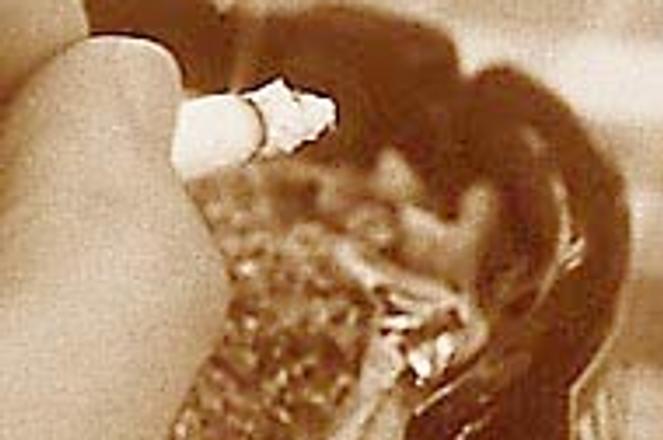But cutoms officers are bracing themselves for a wave of contraband cigarettes.photo: Spectator archives
THE GOVERNMENT has no fears of a rise in cigarette smuggling despite a dramatic increase in the price of cigarettes as of the New Year, a deputy prime minister has claimed.
Mária Kadlečíková, Deputy Prime Minister for Integration, told The Slovak Spectator she was no longer worried about a possible rise in illicit transit of cigarettes in the wake of the January price hike in cigarettes.
"I have no fears on my side. We have taken a number of steps to strengthen our borders, especially the Slovak-Ukrainian border," she said.
Some government members, including Kadlečíková and Finance Minister Brigita Schmögnerová, had expressed concern last autumn that a steep rise in tax on cigarettes, bringing levels closer to those in the EU, could encourage smuggling of cheap cigarettes from countries like the Ukraine.
Slovak customs officers had also said they were bracing themselves for a wave of tobacco smuggling.
Spokeswoman for the Customs Police Sylvia Baláziková said late last year that the force had begun training special sniffer dogs to unearth tobacco contraband and was shoring up watches and checks, particularly on the border with the Ukraine.
However, Kadlečíková now says that investments in strengthening anti-smuggling controls at borders, and intelligence and information systems on contraband transit, have allayed her fears.
"We have improved the quality of our controls at the borders by building more inspection houses, bringing in more modern technology at these checking points and updating our technology for our information systems," she said.
Consumer tax on cigarettes rose from 29.5 to 32 per cent as of January 1, putting on average an extra Sk6 on the price of a packet of 20 cigarettes.
In preparation for EU membership, which Slovakia hopes to gain in 2004, taxes must move closer to levels within the 15-member bloc.
But with the neighbouring Ukraine not an EU candidate and its taxes therefore not subject to any rise, cabinet members and border police had predicted smugglers may seize the opportunity of running tobacco across what Slovak Interior Minister Ivan Šimko admitted in December is a border "full of holes".
Kadlečíková warned: "Of course, everything depends on the border controls. We must be cautious because smugglers may already be devising new methods of smuggling cigarettes," she said.
The illegal trade has been a problem for many former communist countries, costing some economies huge sums of money.
In late November a plot to smuggle 10,000 cartons of cigarettes was foiled by Czech border police. A Slovak was caught trying to bring the contraband across the border in the boot of his car.
Czech authorities said the arrest saved them "millions".
The government has said that partly because of its fears over smuggling it wants a five year transition period on harmonising its cigarette taxes.
The EU tax on cigarettes is 56 per cent, with a rise to 62 per cent planned for July this year.
Other EU candidate states, such as Slovenia and Poland, already have cigarette tax rates closer to EU levels at 46 and 50.3 per cent respectively.
But the government has objected to demands from Brussels that it brings its cigarette taxes into line with those in the 15-member bloc within three years.
"The tax in Slovakia is very low in comparison with EU levels but we would like a five year transition period. The question on this is still open," Kadlečíková said.
She added: "And I must say that I have discovered from my discussions with Spanish officials that Spain still has a transition period on cigarettes. Why should we move faster than any other member?"
The New Year rise in cigarette prices produced chaos at the end of the year when many shops and tobacco stalls ran out of cigarettes with eager smokers hoping to stock up on cigarettes at lower prices.
Grocers also took advantage of the lower taxes, buying extra wholesale in December at pre-tax rise prices and raking in profits when selling them at the new price in January.
With an average of 40 million packets of cigarettes sold monthly in Slovakia retail analysts believe that retailers could make as much as Sk120 million ($2.4 million) from the transaction.

